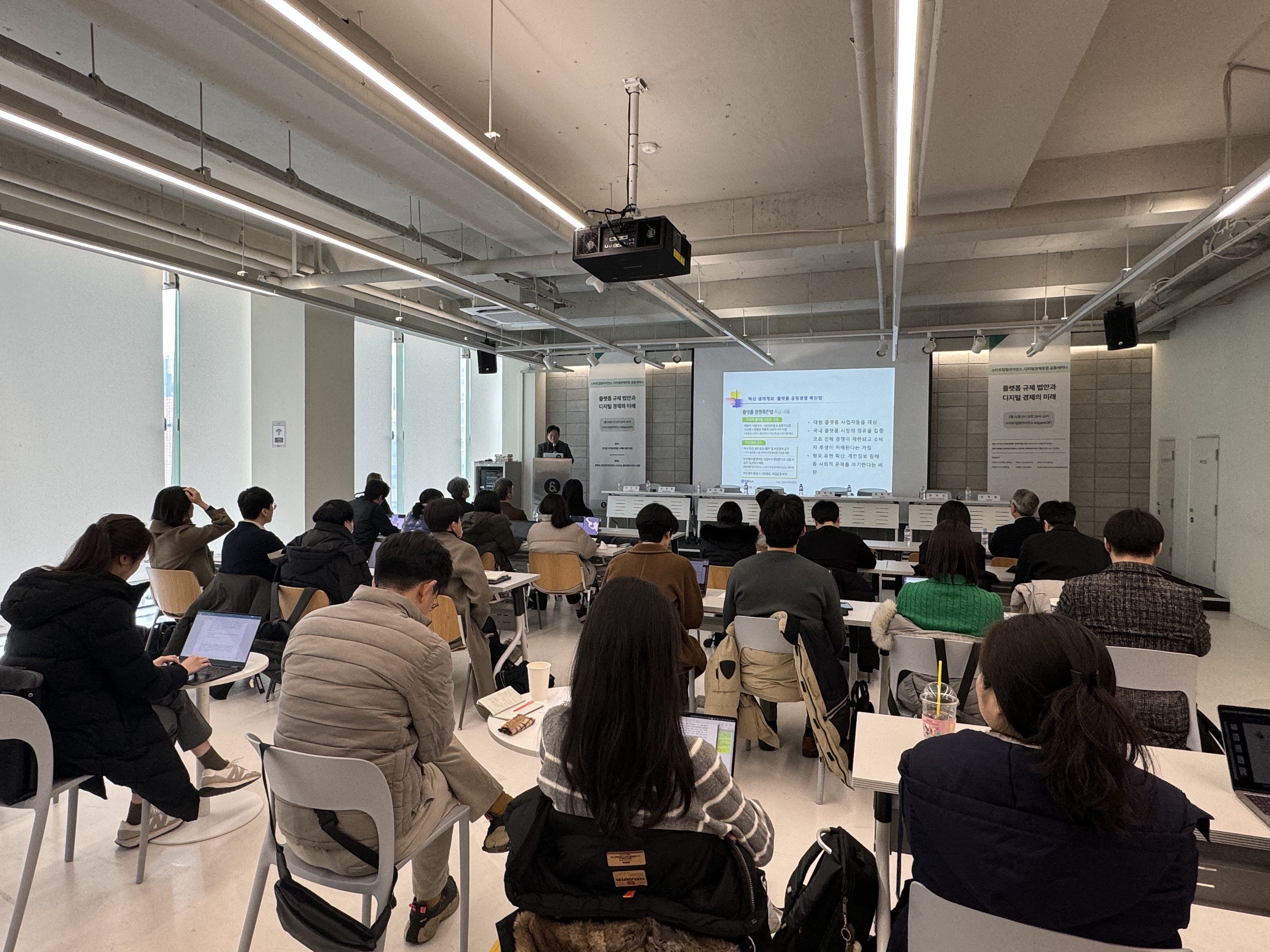
The Korea Federal Trade Commission (KFTC) has proposed the Platform Fair Competition Promotion Act (the “Platform Act”), which may hinder the growth of innovative industries such as startups, contrary to the legislative intent.
Startup Alliance and the Digital Economy Forum (DEF) hosted a discussion on “Platform Regulation Bills and the Future of the Digital Economy” at Starup Alliance &Space on 31 January. The event was organised to discuss the impact of platform regulation bills such as the Platform Act on the digital economy and the startup ecosystem.
Hyun-kyung Kim, a professor at the Graduate School of Public Policy and Information Technology at Seoul National University of Science and Technology, spoke first on “Criticisms and Alternatives of Korean Platform Regulation Theory”. “Less than two years after adopting the self-regulation model, the government is pushing for strong platform regulation without considering the actual domestic market environment,” Kim said, noting that a country’s industrial policy needs to be carefully designed so that parties can predict and prepare for at least 10 years. She emphasised that the future direction of digital platform policy needs to consider five principles: avoid pre-regulation, promote global competitiveness, design collaborative governance, promote user welfare, and actively self-regulate.
The second speaker, Seongmin Jeon, an associate professor at the College of Business at Gachon University, presented “The Impact of the Platform Act on the Startup Ecosystem”. Citing the case of Pandora TV, which held 50% of the domestic video service market share a decade ago but lost its leadership to YouTube due to government regulation, Jeon expressed concern that continued regulation of the digital sector could reduce the country’s competitiveness in the face of increased competition in global innovation industries led by AI.
The general discussion that followed was moderated by Sang-Woo Lee, associate professor at Yonsei University’s Graduate School of Information, who delved deeper into the role of platform policy in the digital economy and startup ecosystem. “There is no other country in the world that creates and processes legislation in such a hurry that can have a huge impact on the entire economy,” said Professor Lee, noting that it is time for sufficient discussion between academia and industry.
Min Ho Kim, a professor at Sungkyunkwan University (SKKU) Law School, began by explaining the background of social law legislation, such as labour law and competition law, stressing that laws aimed at preventing imbalances in the status of one party or the other have been hotly debated for at least 100 years. He questioned whether the KFTC had sufficiently debated the issue in the process of promoting the law, and whether platforms had such a dominant position over users that they could be said to have abused their market power. He added that even after the adoption of the EU’s Digital Market Acts (DMAs), which the KFTC is benchmarking, there is still a fierce debate in the EU.
Weon Seek Kim, Associate Professor at the School of Economics at Hongik University, then explained the barriers to entry that economists first consider when introducing pre-regulation. He argued that while it is clear that platform network effects exist, there is a lack of theoretical and empirical evidence on whether they constitute an insurmountable barrier to entry, and thus a lack of justification for pre-regulation..
Next, Kyu Tae Kwak, professor at the School of Global Business, Soonchungyang University, pointed out that “platforms are both a market and an association” and that regulators should be cautious because suppressing one operator can have a compounding effect on the association itself. “Today, we live all our daily lives through platforms, so national industries and economies, including manufacturing, are all related to platforms,” he said, adding that the impact of regulation is likely to be very large, so a regulatory impact assessment should be carried out first, even if it takes time.
Junghwan Kim, assistant professor of Transdisciplinary Studies on Human ICT at Pukyung National University, pointed out that the KFTC made no effort to listen to the opinions of stakeholders such as platforms and startups in the process of promoting the bill. It’s time to look at whether we are overlooking the power of our own platforms,” he said, adding that “we need to fundamentally rethink our actions to trample on the flower beds when we should be nurturing and encouraging the market.
Sungjin Choi, CEO of Korea Startup Forum, argued that the KFTC’s strict pre-regulation is tantamount to sending a message to the market that it is difficult for platform companies to grow beyond a certain size in Korea. This will also discourage active investment and affect the startup ecosystem as a whole, he said, adding that many startup investors, including venture capitalists, have recently expressed concerns about the platform regulation bill.
Finally, Professor Sang-Woo Lee concluded the discussion by citing the results of a survey conducted by the Startup Alliance among 106 startup representatives on their perceptions of the Platform Bill. “It is worth noting that 53% of the startups said that the KFTC bill will have a negative impact on the startup ecosystem, which is in direct contrast to the KFTC’s claim that the bill will protect startups,” he said.







Leave a Comment